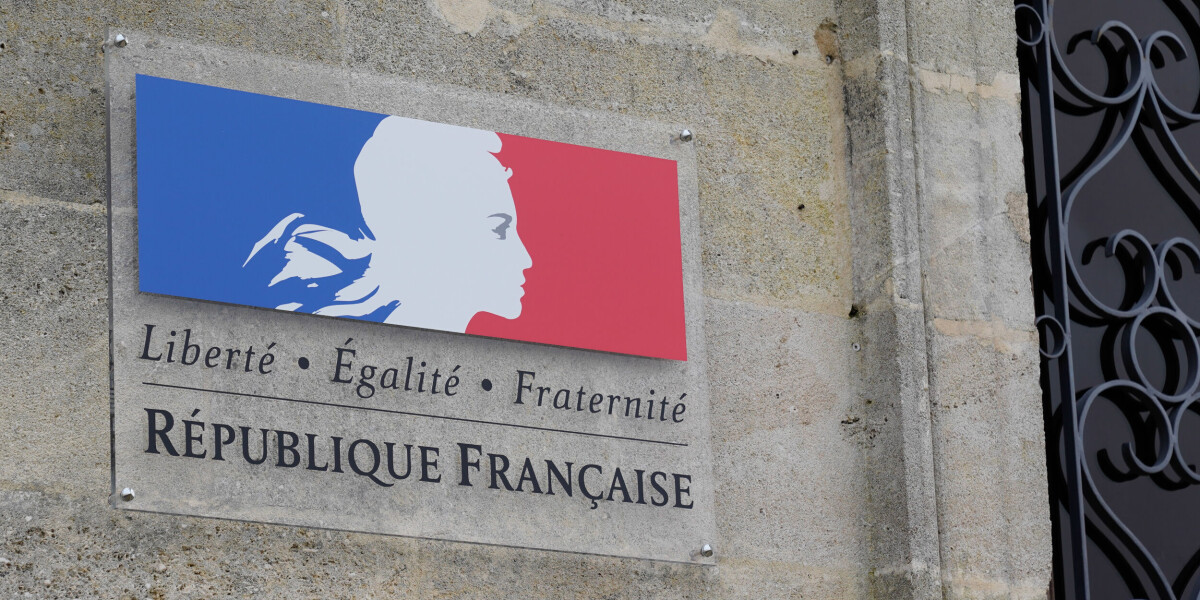
- Select a language for the TTS:
- UK English Female
- UK English Male
- US English Female
- US English Male
- Australian Female
- Australian Male
- Language selected: (auto detect) - EN
Play all audios:
France’s Defender of Rights is ready to help foreigners in the country who face administrative difficulties, even if they are not full-time residents. The Défenseure des Droits’ report for
2022 flagged up foreigners’ residency as the ‘most complained-about’ public service, so we spoke to Daniel Agacinski, her deputy in charge of mediation. _Photo: Daniel Agacinski mediation
chief; Credit: Défenseure des Droits_ REPORT OFFICIAL BODIES TO DÉFENSEURE The Défenseure is both a person, currently Claire Hédon, and a service, including central office staff in Paris and
570 departmental delegates. People facing difficulties with official bodies can apply to the Defender by online form (click ‘file a claim’), phone, in person with a departmental delegate,
or in writing, without a stamp, to: Défenseur des Droits, Libre réponse 71120, 75342 Paris CEDEX 07. The remit is even larger for ‘discrimination’, for example, if you believe you were
poorly treated based on origins or nationality, the Defender can help even if a state body was not involved. READ MORE: ALERT RAISED OVER POOR FRENCH RESIDENCY SERVICES FOR FOREIGN PEOPLE
READ MORE: WHICH FRENCH PUBLIC SERVICES DO CONNEXION READERS FIND ‘MOST HELPFUL’? ‘AMICABLE’ MEDIATION IS MOST COMMON The Defender can look into issues free of charge and undertake
mediation, or assist with going to court. Mr Agacinski said: “The strategy depends on the situation and the nature of the infringement of rights that we identify, but the ‘amicable’
[mediation] process is the most common, even if it can be complicated when it comes to prefectures.” Departmental delegates often undertake the mediation, seeking a solution or explanation
from bodies in their areas, whereas national-level lawyers typically help with legal action where necessary. IF PROCEDURE IS ONLINE ONLY IT CAN HARM PEOPLE’S RIGHTS The Defender continues to
receive many complaints related to foreigners’ services, particularly related to the trend for putting procedures online. “Digitisation made procedures easier for some, but it’s made it
harder for those who have difficulty using the internet or anyone who comes across bugs or difficulties because their situation doesn’t tick the usual boxes. “If an online process is the
only option and it’s not accompanied by a human presence, able to respond to questions and help with blockages, it can harm people’s rights.” READ MORE: FOREIGNERS AMONG THE LOSERS AMID
FRANCE’S ‘EXCESSIVE DIGITISATION’ PANDEMIC MADE EXISTING PROBLEM WORSE Mr Agacinski said issues have been reported with this in many areas of public service, from social services to
unemployment benefits, but it has caused the most serious consequences for users of residency services at prefectures because of the wide-ranging impact on people’s lives. “It’s also the
case where contact with the service has become the most closed-off and reduced in quality. “That had already started before the pandemic, due to political and organisational choices, so we
can’t put it all down to that, even though it rapidly made things worse,” Mr Agacinski said. It has become “extremely difficult, if not impossible, to communicate with someone,” though it is
likely to be easier away from the large cities. As a result, people might not get the advice they need to complete formalities correctly, and end up needing help from other providers, such
as social workers or charities. READ MORE: CALLERS OFTEN CANNOT REACH KEY PUBLIC SERVICES IN FRANCE BREXIT CONSEQUENCES CAME AT ‘UNFORTUNATE’ TIME The move to putting applications online
appeared to have been done too fast and without enough backup from actual people where necessary, he said. “Even the Cour des Comptes [which checks on public spending] has recognised that we
went too far, too fast in reducing personnel in prefectures.” That was then compounded during the pandemic, as many staff were not equipped to do their jobs from home, which slowed down
processing, he added. “Britons then had the misfortune that the consequences of Brexit, and the new necessity to undertake procedures to have residency cards, came just at that point when
the services had become worse for all non-EU citizens.” NO FACE-TO-FACE FOR DRIVING LICENCES WAS ‘FIRST SHOCK’ However the “first shock” had come in 2017-18 with the closing down of
face-to-face services for driving licences and vehicle _cartes grises_. Mr Agacinski said that the situation had improved in that respect but there were now concerns over redeployment of
more staff at ANTS towards French people’s passports and ID cards. Regarding residency issues, he said that people often cannot turn to the local France Services centres that help with
administrative tasks, as residency matters are not officially part of their remit. Meanwhile, some, but not all, prefectures now have _points d’accueil numériques_ (IT help desks), but they
help with using official websites, not with residency problems per se. READ MORE: WHAT ARE FRANCE SERVICES POINTS AND HOW CAN THEY HELP YOU? LOCAL DELEGATES FOR DEFENDER OF RIGHTS The
Defender can help, for example, when a card is refused or it is taking too long to obtain a response from officials. “All foreigners who are [physically] in France can see a delegate to see
if their rights have been infringed and we can help to restore the person’s rights, or obtain a response or get a situation looked at again.” FIND YOUR LOCAL DELEGATES HERE. HELPLINE MAY
HELP IN ENGLISH In theory, Mr Agacinski said they are meant to focus especially on complex disputes over interpretation of rules and unusual situations that were not provided for, but they
are now often being called on just because people cannot get an appointment, which he said is “extremely serious”. Last year, top administrative body the Conseil d’Etat said there must be
help on offer for those experiencing issues with online residency procedures, and that alternative ways of accomplishing them must be provided. However, the Defender continues to receive
“more and more” complaints. Mr Agacinski said if you call their helpline (09 69 39 00 00), you can ask if there is an English-speaking delegate who can help, but this is not guaranteed. The
website is partly in English, and the online application form is being translated. In the meantime, some internet browsers can translate. WHAT DO YOU THINK OF FRANCE’S PUBLIC SERVICES? LET
US KNOW [email protected] RELATED ARTICLES NON-FRENCH SPEAKERS AMONG THOSE DISADVANTAGED BY FRANCE'S ONLINE ADMIN WHERE CAN I GO TO OBTAIN FREE ADVICE ABOUT LEGAL ISSUES IN
FRANCE? POST BREXIT: WHEN DO BRITONS NEED TO SWAP TO FRENCH DRIVING LICENCE?








